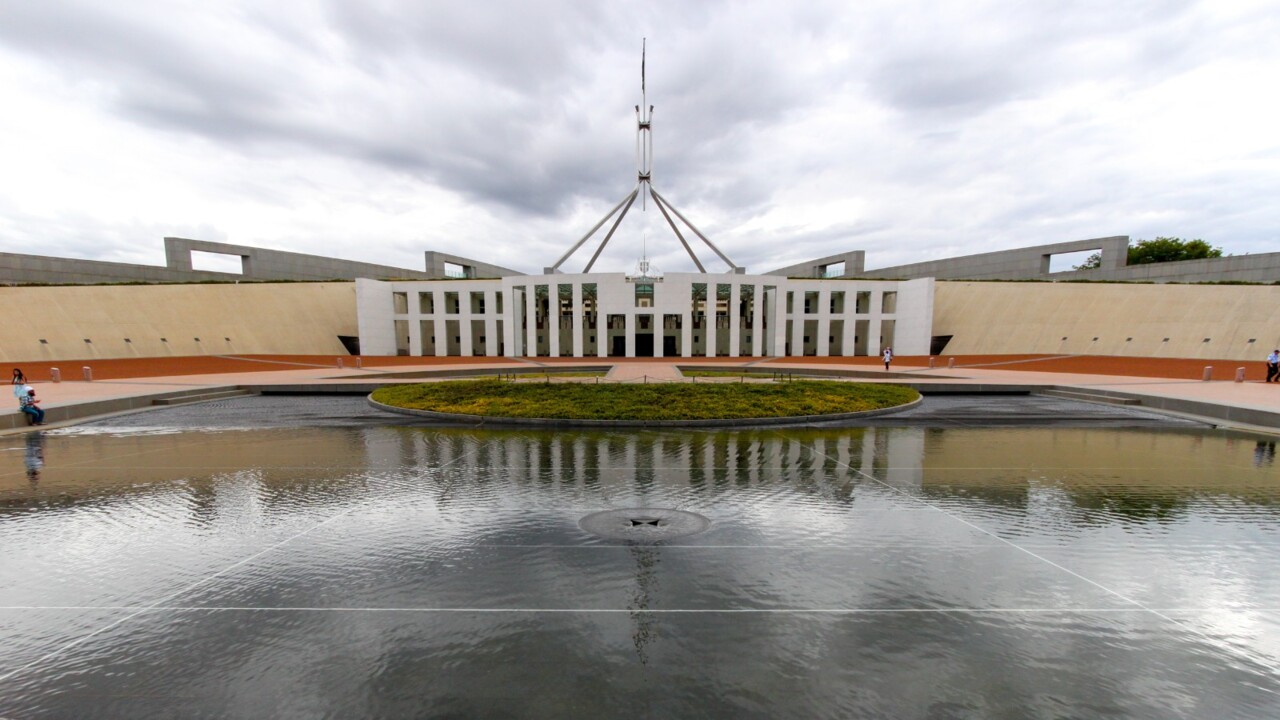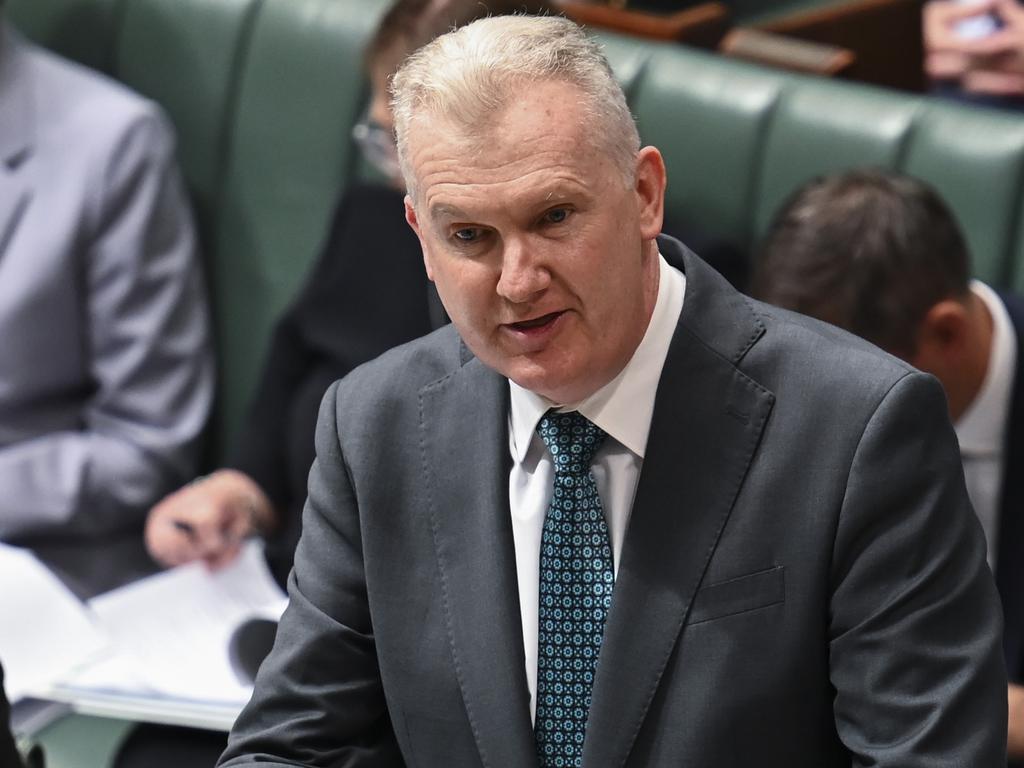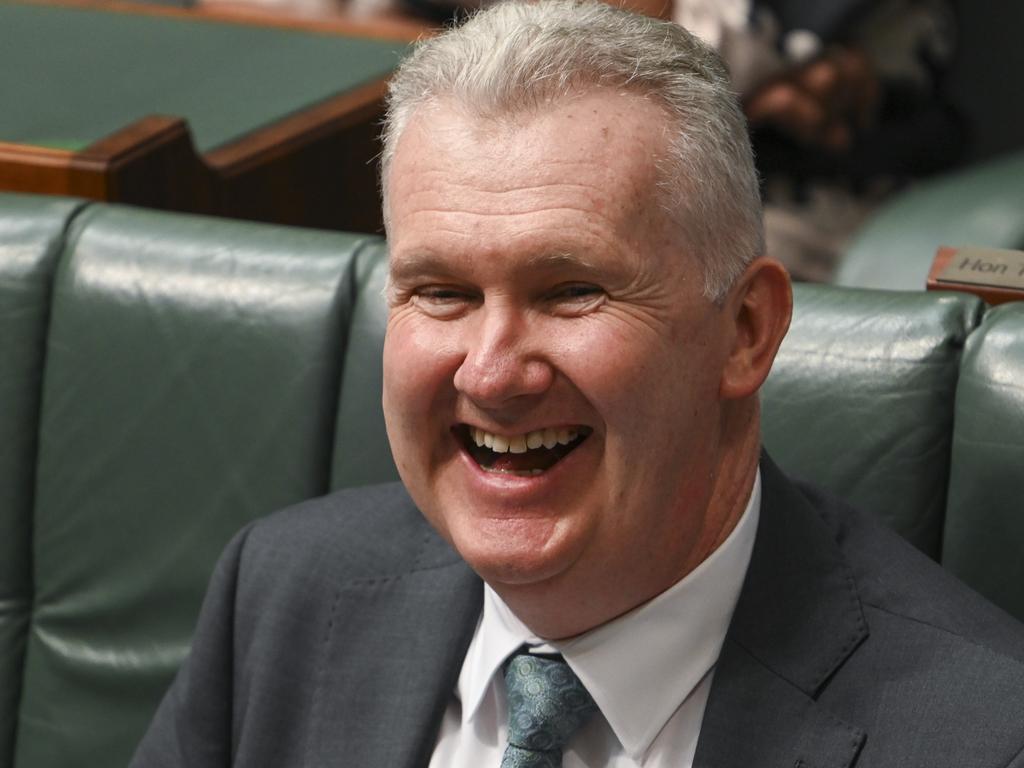Union bid to beef-up right to disconnect laws
Bosses being disorganised would not be an acceptable excuse to contact workers after hours to perform unpaid work, under an ACTU push to strengthen the new right-to-disconnect laws.

Bosses being disorganised would not be an acceptable excuse to contact workers after hours to perform unpaid work, under an ACTU push to strengthen the Albanese government’s new right-to-disconnect laws in favour of employees.
The ACTU has urged the Fair Work Commission to beef-up the new right-to-disconnect clause to be inserted into awards, declaring the extra provisions would hold employers accountable for proper staffing and planning to minimise out-of-hours contact.
Unions cited the example of an employer giving an employee a job at 4.50pm on a Friday, then wanting to contact the worker over the weekend about whether or not they had finished the task.
Under the new right-to-disconnect provisions, to come into operation from August, an employee may refuse to monitor, read or respond to contact, or attempted contact, from an employer outside the employee’s working hours unless the refusal is unreasonable.
In assessing whether a refusal is unreasonable, a series of factors would be taken into account, including the reason for the contact or attempted contact, how the contact or attempted contact was made, and the level of disruption the contact or attempted contact caused the employee.
Further factors include the extent to which the employee is compensated to remain available to perform work during the period in which the contact is made, the nature of the employee’s role and level of responsibility, and the employee’s personal circumstances, including family or caring responsibilities.
The ACTU proposes adding two factors: whether the employee is on approved leave or another authorised absence, and the extent to which the employer has made adequate staffing arrangements and planned for workplace fluctuations to minimise the need for out-of-hours contact.
ACTU president Michele O’Neil told The Australian “employers being disorganised is not an excuse for not paying workers”.
“Unions are arguing that awards clearly set out workers’ rights to have a life outside work,” Ms O’Neil said.
“Changes in technology and work arrangements cannot be used to undermine the right to be paid for the work you do and to have the right to disconnect.”
Employers groups are expected to oppose the push. The Australian Chamber of Commerce and Industry on Sunday argued for the new term to be “non-prescriptive to avoid imposing inflexible mandates on businesses”.
ACCI director of workplace relations Jessica Tinsley said the parameters for after-hours communication should be determined between employers and employees rather than imposed through rigid rules.

“Various industries already have practices like on-call or call-back provisions that accommodate out-of-hours contact, often with additional remuneration,” Ms Tinsley said. “Employers manage expectations through job descriptions and informal agreements, with many sectors relying on ad hoc employee availability for operational needs.
“The right to disconnect should balance employee rights with business needs, ensuring operations are not compromised while protecting employees’ personal time.”
Ms O’Neil attacked Opposition Leader Peter Dutton over his promise to scrap right-to-disconnect laws if the Coalition wins office.

“Peter Dutton wants Australians to work longer hours for lower wages while they face cost-of-living pressures,” she said. “Abolishing this right would worsen the work-life balance of families and create more burnout and stress in people’s lives.”
Meanwhile, Jim Chalmers has rejected employer claims that energy bill relief and rental assistance in the federal budget should reduce the size of an imminent wage rise for 2.9 million low-paid workers, calling for a decent pay increase in line with or above the inflation rate
Reaffirming that the government did not want to see the pay packets of minimum-wage and award-reliant workers go backwards, Dr Chalmers said the cost-of-living measures in the budget were designed to “supplement decent wages, not supplant them”. The Australian Industry Group says the $300 energy rebate and increased rental assistance assists low-paid workers and justifies limiting the pay rise to 2.8 per cent, just over half the ACTU’s 5 per cent claim.
According to Treasury forecasts in the budget papers, inflation will be 3.5 per cent at July 1 before falling to 2.75 per cent next financial year. It predicts wages growth will peak at 4 per cent before falling to 3.25 per cent for the next two financial years.
If the commission were to split the difference between competing union and employer group claims, as it has done in the past, low-paid workers would get a 3.9 per cent rise, which would be above inflation and in line with the government’s position that employees not go backwards.
Asked on the ABC’s Insiders if he would like to see this year’s minimum wage increase higher than inflation, Dr Chalmers said: “Our view is consistent with our submission. We don’t want to see people go backwards.”








To join the conversation, please log in. Don't have an account? Register
Join the conversation, you are commenting as Logout